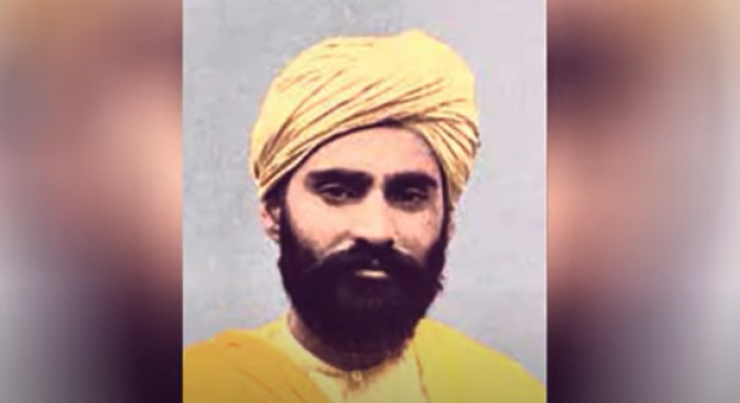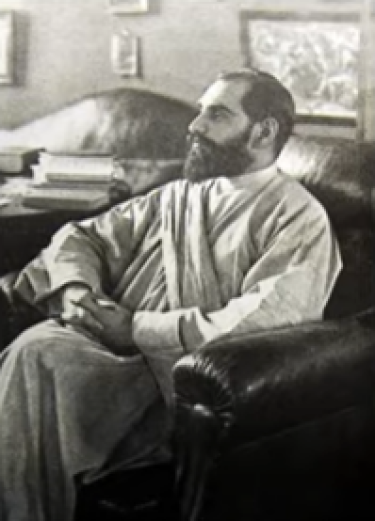
As we commemorate the 134th anniversary of Sundar Singh's birth on September 3rd, his enduring influence continues to resonate with millions worldwide. His life stands as a poignant reminder of God's unwavering faithfulness, showcasing how even those with the most calloused hearts can experience a profound transformation, much like the Apostle Paul, who once persecuted Christians, a path that Sundar Singh also traversed.
Sundar was welcomed into this world by a devout Hindu mother who meticulously instilled in him the teachings of Hinduism, Sikhism, and Islam. Her fervent desire was for her son to embrace the path of a Sadhu, a calling he initially accepted. However, destiny had other plans as he encountered Christ on December 17, 1904, catalyzing a remarkable change in his life's course.
After the passing of his mother, Sundar's father enrolled him in a Christian school in Ludhiana. Initially harboring a deep aversion towards Christians, Sundar even went so far as to burn a Bible in protest.
Mere days after setting fire to the Bible and grappling with a crisis of faith following his mother's death, Sundar Singh found himself unable to endure this anguish any longer. In the early hours of that cold December morning, Sundar prayed, “O-God-if there is a God, show me the right way, and I will become a sadhu; otherwise, I will kill myself.” Towards half-past four, a great light shone in his little room in Rampur, Punjab state. He thought the house was on fire and opened the door, but there was no fire. He closed the door and went on praying. Then, there dawned upon him an amazing vision; in the centre of a shining cloud, he saw a man's face, radiant with love. At first, he thought it was Buddha, Krishna, or some other divinity, and he was about to prostrate in worship. Just then, to his great astonishment, he heard the words. “Why do you persecute Me? Remember that I gave My life for you upon the Cross.” Utterly at a loss, he was speechless with astonishment. He noticed the scars of Jesus of Nazareth… Then the thought came to him: “Jesus Christ is not dead; He is alive, and this is He Himself.”
He then woke his father, exclaiming, “I am a Christian!”
His frustrated father replied, “You’re off your head, my boy… just now, you were going to kill yourself.”
Singh replied, “I have killed myself: the old Sundar Singh is dead; I am a new being.”
(Robert Hudson, Seeing Jesus, (Broadleaf Books, Minneapolis, 2021) 245-246.)
Sundar wore the robe of a Sadhu (ascetic, “holy man”) and dropped out of a Bible College because he did not find it enriching. The Sadhu was like the apostle Paul, whom Christ encountered in many ways, and like Francis, he imitated Christ’s life of poverty. Sundar's unquenchable thirst mirrored that of Moses, yearning to witness the glory of God. He documented these visions and ecstasies that arose from his dedicated hours of prayer and diligent Bible reading.
We can learn much from the way he read the Scripture. The Bible, for him, was not a textbook to be analysed to interpret God- what an audacity! Sadhu read the Bible to experience union with God. A large proportion of his life was devoted to meditation on some chapter of the Bible, preferably the New Testament and the Psalms, or on God in Nature—meditation leading on to prayer, prayer leading on to silent communion, silent communion leading on to the inner transport of ecstasy. The devotion to God for the Sadhu was always Christocentric. He also believed the Scripture must be read with complete surrender to God and the authority of God’s Word for the meaning to be clear. Indeed, the Holy Spirit, who inspired the Scripture, is the best interpreter of Scripture and must be experienced as the Spirit-Word is heard and obeyed. Didn’t God command: “Hear, O Israel: The LORD our God, the LORD is one.” (Deuteronomy 6:4). Hearing involves obeying. The Bible is God’s Word and not a contextual book, as many theologians believe and reject the Bible as the text rather than find the text in the context. As rightly asserted, you can never find text in the context. God has revealed Himself in the historic person of Jesus of Nazareth.
The hardcore ecumenical agenda of secularized Christianity has weakened Christianity and enfeebled churches' mission and ecumenism, which now remain “satisfied with a ‘lukewarm’ understanding of ecumenical fellowship as co-habitation, cooperation, rather than advancement towards greater koinonia in faith, worship, and Eucharistic fellowship.”
(Ioan Sauca, “Global Ecumenical Movement” in Sharing of Faith Stories edited Richard Howell Caleb Institute, Haryana,2022), 199ff.).
The secularization of public life, rooted in the Eurocentric Enlightenment principles of autonomy, individualism, and rationalism – which empower individuals to determine what is known – comes into conflict with the "prophetic Christian faith." This faith, based on Jesus' ministry, offers guidance for living in the public sphere and prioritizes community life but is often relegated to the private realm. Sadhu Sundar Singh's enduring influence continues to inspire deep devotion to God, transcending generations. This inspiration also touches the lives of migrant South Asians who have chosen the West as their home, where they are influenced by the prevailing norms, values, and secular epistemologies of modernity.
The contemporary ecumenical movement needs to heed what Heiler has pointed out, ‘Singh had a special mission to Christian theology and the Christian Church of the West: ‘Theological research needs to be constantly balanced by living Christian piety if it is not to degenerate into presumptuous speculation, destructive criticism, or empty dialectic. Theology without prayerful piety is like a fountain whose water has run dry.’ (Heiler, The Gospel of Sadhu Sundar Singh, 259.)

In 1920, Sadhu became a missionary to the West; people were drawn to him because he matched the image of an Indian holy man, a mystic with a turban, saffron robes and a dark beard. The amazing Corrie ten Boom of Netherlands, whose life was shaped by various encounters, then a young woman eagerly went to hear him. C.S. Lewis took an interest in the Sadhu and referenced him in at least two books. (Hudson, Seeing Jesus,250).
The Sadhu serves as a poignant reminder of the importance of resilience, even in the face of persecution and martyrdom, a resilience mirrored by the Orthodox Church. Despite enduring oppression under a dictatorial Marxist regime, the Orthodox Church steadfastly clung to its Christological foundations, which form the bedrock of its identity as a community united around the Risen Lord.
Another significant observable sign is that while the white Christians are leaving the church, the West encounters growth of Christian communities among immigrants of color, offering an invitation for reorientation to break free from the shackles of cultural captivity, to acknowledge and love the ‘other’ and, in turn, to embrace diversity and thus truly be a world Church. And the presence of missionaries from Asia and other countries in the West has commenced the re-evangelization of a secular West.
The Christian faith retains the mystery of God but should not entertain the idea that God is unknown and unknowable, as mysticism proposes. The Sadhu lived the teaching of John 3:16: “For God so loved the world.” The Bible makes a positive statement about God, as written in 1 John 4 6: “God is love.” God is the source of love, which is situation-independent and unconditional. God loves the world He created, not just the Church. The body of Christ needs to live this inclusive love of God.
Sadhu Sundar Singh proclaimed in word and deed Jesus who transforms life and never criticized the teaching of other religions. The Gospel is what the world needs, and Jesus is the Gospel, who reconciles us to God and makes us ambassadors of the Gospel of reconciliation. The Sadhu remains a world Christian, a missionary to the West as well.
Rev. Dr. Richard Howell is the Principal of Caleb Institute, Haryana, India. He is the former General Secretary of Evangelical Fellowship of India and Asia Evangelical Alliance. He is also the founding member of the Global Christian Forum.




